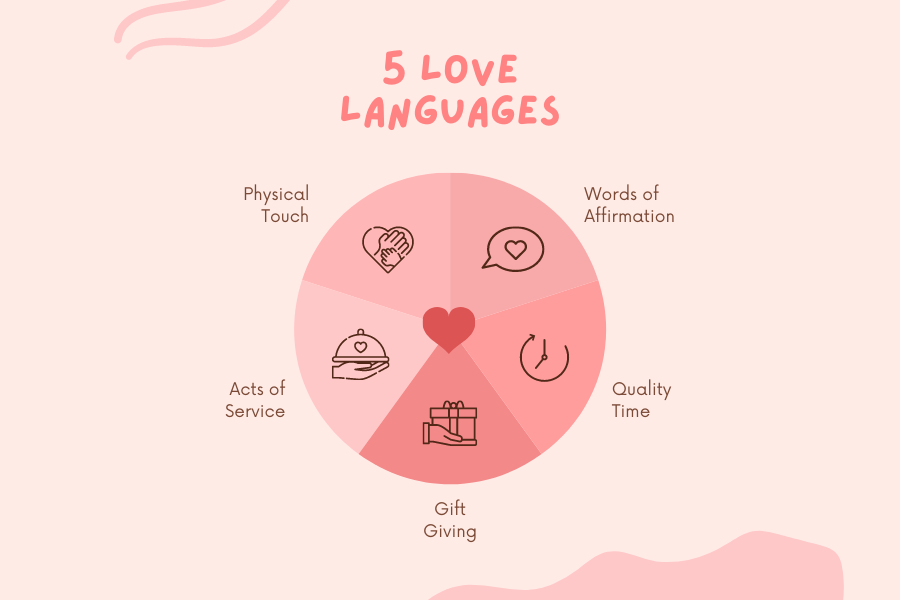There is a common misconception about anger: “It is a feeling always caused by others.” Well, for starters, this paradigm is false. Believing this is true in the first place is why most anger management therapy sessions are unsuccessful.
As an example, consider the well and bucket analogy: When you put a bucket in a well, whatever is in the well comes out. So this literally means if you are angry inside, circumstances will elicit an angry response from you. In other words, since we cannot control everyone else’s behavior, thoughts and actions, we must maintain our own reaction (anger) to them.
So, let’s go over how to deal with this effectively…
WHAT IS ANGER MANAGEMENT THERAPY
Anger management therapy is a process that helps you identify your stressors. People learn steps to help them stay calm in anger management. After which they’d be able to handle tense situations in a constructive and positive way.
The purpose of anger management therapy is to help you reduce violent responses (anger) to situations. It also reduces the emotional and physical arousal that anger can cause.
Going through the roots of anger, several kinds of events can trigger it. These may include;
- Internal events such as perceived failures, injustices, or frustrations.
- External events such as loss of property of privilege, teasing, or humiliation.
Anger always results in externalizing behaviors. These can include verbal arguments and tantrums. Anger can also cause internalizing behaviors. Internalizing behaviors can include sulking or increased symptoms of depression. People may also show anger through aggression. Aggression is the biological function of anger. It is an evolutionary response that helps prepare people to fight off threats.
However, inappropriate displays of anger may mean a more serious mental health or emotional issue exists. So, people who receive anger management therapy learn skills to stall their reactions to anger. This helps them identify the reason for their feelings. Oftentimes, t? the roots of anger may be buried in emotional trauma, addiction, grief, or other issues. But a natural inclination may be to find temporary relief in lashing out. If this is the case for you, working with a therapist might be helpful.
HISTORY OF ANGER MANAGEMENT THERAPY
Anger management therapy dates back thousands of years in human history. Prominent figures in the history of anger management therapy include:
- Roman philosopher Lucius Annaeus Seneca (4B.C-65A.D).
- Greek physician and philosopher Aelius Galenus (129-216).
- Francis of Assisi (1181-1226)
These figures highlighted the importance of adjusting one’s perspective of events. They also supported avoiding situations that could incite rage.
In modern times, trained psychologists have developed programs for people with anger issues. These programs help people better control their emotions.
What Does Anger Management Do?
There are two kinds of anger; active and passive.
Active anger is when something occurs (e.g a glass breaks), and then you get angry at the person who breaks it. But soon after that, you become calm again. A person can be good at heart but blunt and get angry often.
That’s okay as long as you do not hold grudges the passive individuals.
Passive anger is more dangerous. This kind of person is cool on the outside but very hot inside. He has anger, hatred, jealousy, and feeling of revenge inside.
Reasons for Anger:
Always Reacting
This means you have a lot going on at once. You have overbooked and overscheduled yourself and your family. The result is you are overly time-conscious, and any delay makes you irritable and angry.
Ego
If anyone says anything negative to you, your ego is hurt. You can’t handle any kind of criticism, and you want to get even with that person.
High Expectations
If you have high expectations and they are not fulfilled, you get angry. We must accept the fact that all of us have weaknesses. Accept the weakness of others and adjust to them. If you don’t, you are just setting yourself up for disappointment, which will lead to anger.
Wrong Approach to Things
It is often said: “What you think is what you are.” What do you think will probably happen? So don’t be harmful in your thinking. Instead, be positive. Take a positive approach if something terrible happens.
Now that we know the causes of anger, try to understand which ones trigger you and then try to control it. This doesn’t mean you can never be angry at little things, but being irritable all the time is uncontrolled anger. It is unhealthy.
Who Needs Anger Management Therapy
Everyone experiences feelings of anger from time to time. It can even be healthy to let that anger out. However, not everyone can keep control of those emotions. Experiencing uncontrolled anger is certainly not the most comfortable situation, but what can be even worse is having to deal with the ramifications. If you or someone you know finds themselves in that situation frequently, it might be time to evaluate whether there is a serious problem in dealing with anger.
But mind you, anger and an anger management problem are two totally different things. Releasing anger from time to time is normal. Doing so is an instinctive physiological reaction to some situations, and it is your body saying that something is wrong. Sometimes it might even push us to take action.
For instance, someone might feel anger at the sight of seeing an animal being abused and that anger might push them to intervene or get help.
But more unhealthy displays of anger include rage, passive aggressiveness, resentment, and verbal or physical abuse.
If you are wondering if the anger levels you or someone you know is experiencing are normal, here are a few signs to know for sure who needs anger management therapy
Signs That There Might Be an Anger Management Problem
Passive Aggressiveness
When most people think of anger management problems, they think of more vocal and/or physical demonstrations of anger, but passive aggressiveness can be just as much of a sign of trouble as the more traditional display of anger.
Passive-aggressive behavior is the practice of expressing unpleasant feelings in a non-direct manner rather than immediately addressing them. There’s a gap between what someone who engages in passive-aggressive behavior says and what they do.
Can’t Help but Blame Others
When you lay the blame for problems at the feet of others, it is easy to feel angry. Feeling like your situation is entirely the fault of someone else can be infuriating.
Frequent Anger
Feeling angry all the time is not only a sign of an issue, but it is also physically and emotionally unhealthy. If you find yourself angry more often than not, that is a sign of a problem.
Anger Management Therapy Techniques
These can help calm a person or distract them long enough to process their thoughts in a constructive way.
Different techniques are effective for different persons but finding a method that works can be instrumental in defusing episodes of extreme anger.
These techniques include:
- Deep, slow breathing: Focus on each breath as it moves in and out, and try to spend more time exhaling than inhaling.
- Easing physical tension: Try tensing each part of the body for a count of 10, then releasing it.
- Exercise: Physical activity is a great way to use up excess adrenalin. A brisk run or walk or combat sports, such as boxing or marital arts, can be useful outlets for aggressive or confrontational feelings.
- Mindfulness: Meditation is one example of a mindfulness technique, and these can help shift the mind away from anger during triggering situations, especially after consistent practice.
How Long Is Anger Management Therapy
There are so many delusions about therapy in general, specifically anger management therapy. So many people come to the conclusion that they can attend one or two sessions and then get solutions, or that they’ll get roped into years of therapy. The reality is that neither of these things are usually true. When people ask how long anger management therapy takes, the answer depends on many factors.
How long it takes to acquire the skills for effective anger management is very relative.
Factors that Influence Effective Anger Management Therapy
Learning to effectively manage anger is a complicated process. When you’ve decided that you need help and are ready to receive it, you need to be prepared to do the necessary work without an associated time frame. Putting pressure on yourself to “fix things” in four weeks, three months, or even a year will take the focus off becoming successful in your effort and place it on just meeting your timeline.
Are anger issues a mental illness?
Anger can be triggered by a variety of factors, including stress, issues within the family, and financial concerns. An underlying mental health condition, such as alcoholism or depression, can be the catalyst for anger in some people. Although anger is not in and of itself a disorder, it is a symptom that is associated with a number of different mental health conditions.
What emotion is behind anger?
Because it is easier to feel anger, it can distract you from experiencing and healing the pain that you feel on the inside. This can prevent you from finding a solution to the problem. Frustration is one of the primary feelings that can set off a chain reaction the fastest. Frustration is a common emotion that people feel when they believe they are powerless or when they lack control over a situation.
Is anger inherited or learned?
People have a tendency to remember their parents, grandparents, and other members of their extended family as being angry people. This is especially true for children. Many people are of the opinion that this is a genetic condition. On the other hand, the vast majority of specialists are of the opinion that anger is a learned behavior. This is of course assuming that it is not the result of Bipolar Disorder or any other form of mental illness.
Does childhood trauma cause anger issues?
It is common for the trauma and shock caused by abuse in early childhood to have an effect on how well the survivor learns to maintain control of his or her feelings. Problems in this area cause frequent outbursts of extreme emotions, including anger and rage. These outbursts are often the result of frustration.
Conclusively
Anger management can actually be controlled if you are willing to follow the proper process and live a healthy life.
Anger Management Therapy FAQs
What is the best therapy for anger management?
According to Engle, cognitive behavioral therapy (CBT) is often the best treatment of choice for anger control. It can help you understand your anger triggers, develop and practice coping strategies, and think, feel, and act differently in response to anger, allowing you to be calmer and more in control, according to her.
What are 3 anger management techniques?
Expressing, suppressing, and calming are the three major techniques. The healthiest method to express rage is to express it in an assertive, rather than aggressive, manner. To do so, you’ll need to learn how to express your requirements clearly and how to get them met without causing harm to others.
Is anger management a mental illness?
Because anger isn’t a mental disorder in and of itself, the new edition of the Diagnostic and Statistical Manual of Mental Disorders doesn’t have a specific diagnosis for anger issues (DSM-5).



